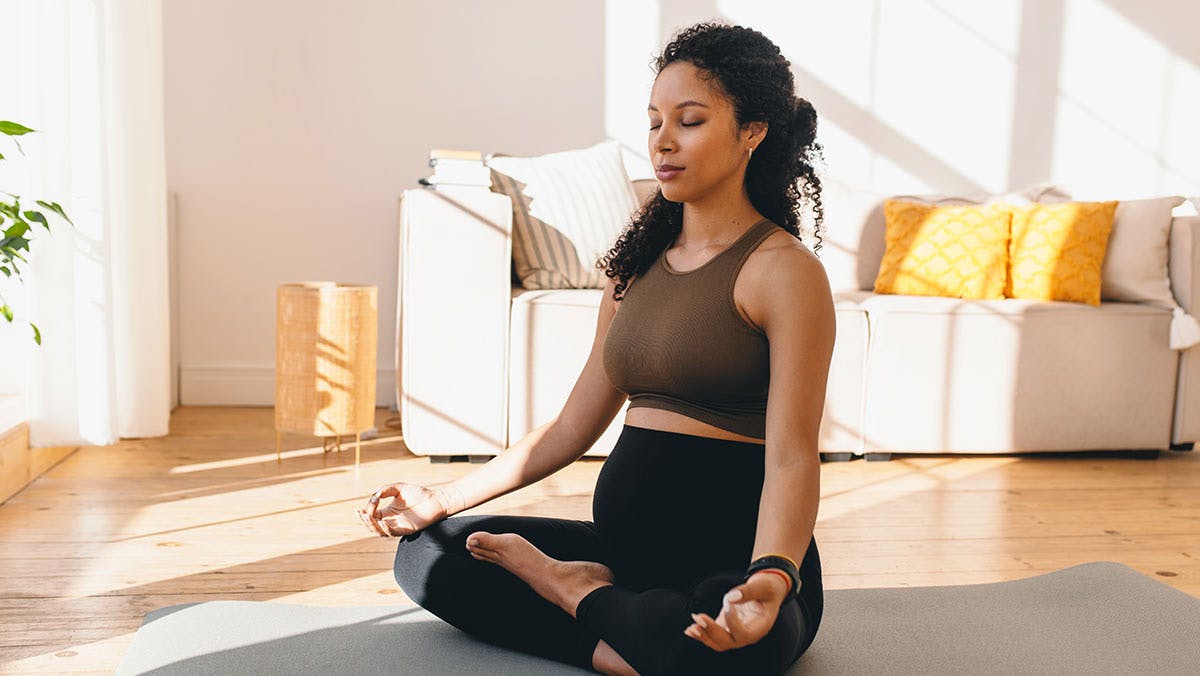Staying Active During Pregnancy: Safe Workouts and Activities

If you are healthy and having what’s considered a normal pregnancy, it’s generally safe to begin or continue exercising.[1] While you should talk to your doctor before starting any sort of fitness routine, being pregnant is by no means a reason to stop being active.
What are the Benefits of Exercise During Pregnancy?
Pregnancy may seem like a time to sit back and relax. After all, you’re tired all the time from creating a new life, it’s hard to move around, your back aches, and you’ve been eating for two. It can be all too easy to sit on the couch and watch reruns for nine months—but you should incorporate regular movement into your day, at every stage of your pregnancy.
The physical and mental benefits of staying active can:[1][2]
- Improve your overall fitness and promotes muscle tone, strength, and endurance
- Strengthen your heart and blood vessels
- Lessen back pain
- Ease pregnancy-related constipation
- Decrease risk of gestational diabetes and preeclampsia
- Improve sleep
- Increase energy levels and better overall mood
- Reduce the risk of a caesarean section
Are There Risks of Being Active During Pregnancy?
Every pregnancy is different, and every body is different. And while staying active is generally considered safe for a mother and baby, you should talk to your healthcare provider before starting any sort of exercise program, even one you’ve used before. Your doctor may have some words of caution before you get started or may advise you to try some exercises instead of others.
If you have any of the following conditions, your doctor may advise against a vigorous fitness routine:[1][2]
- Pre-existing heart or lung disease
- Preeclampsia, or high blood pressure that suddenly develops during pregnancy
- Issues with your cervix
- Problems with your placenta
- Vaginal bleeding during the second and third trimesters
- Being pregnant with multiples, which has more risk of preterm labor
- Severe anemia
In addition to these conditions, there are some exercises and positions that should generally be avoided by pregnant women because of the risks they pose to you and your baby:[1][2][3]
- Sports that put you at risk of falling or getting hit in the abdomen, like horseback riding, soccer, and basketball
- Activities that may cause you to become overheated, like hot yoga
- Physical activity at a high altitude if you aren’t adjusted to it
- Scuba diving
- Activities where you lay flat on your back, where the weight of the baby can put pressure on blood vessels and cause you to feel faint
Pregnancy Safe Workouts
For most pregnant women, at least a half hour of moderately intense daily activity is recommended.[2] One of the safest and most beneficial exercises is walking due to its ability to get your heart rate up without putting too much stress on your joints.[1][2]
Swimming is another form of exercise that is popular with moms-to-be. The water supports your body, allowing you to move freely without putting any strain on your muscles or risking injury.[1][2]During the third trimester, when you’re feeling your largest, being able to move around without restriction in a pool can do wonders for your mental health and emotional well-being.
Generally, it is recommended that pregnant women stick to low-impact exercises. If you want to lift weights, it’s best to stick to lower weights, unless you’re working with a qualified professional who has specific knowledge relating to safe workouts for pregnant women.[3] Compared to outdoor cycling, a stationary bike or elliptical can be a great way to stay active that won’t stress your joints.[1][2]
As with all exercise, make sure you’re staying hydrated and not overdoing it.[3] Don’t skip your warm-up before and cool-down after your fitness routine, this can help stretch your muscles and help your body recover safely.[3]
Another way that you can support your overall health during your pregnancy is with Centrum Maternal Health PreNatal Multivitamin Gummies. Support your little one’s development while actively caring for yourself—whether you’re ensuring that you get all the vitamins and minerals you need, or making sure that you’re safely staying active.











